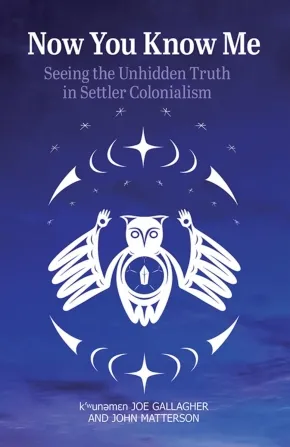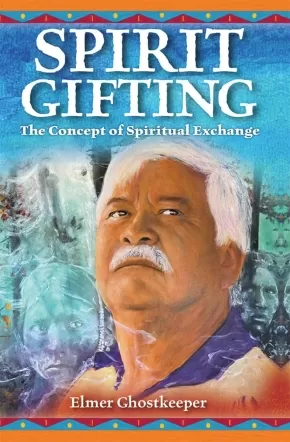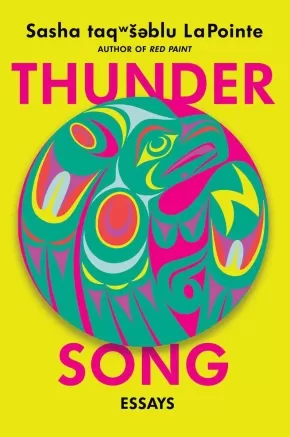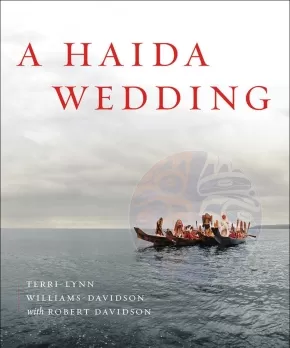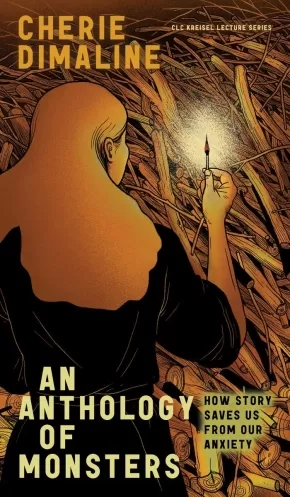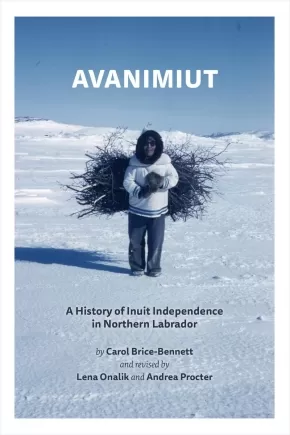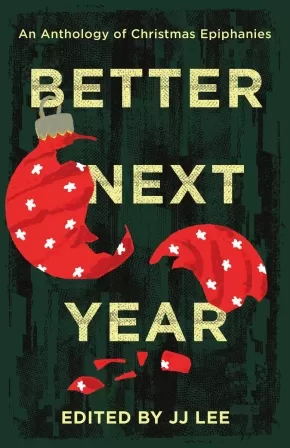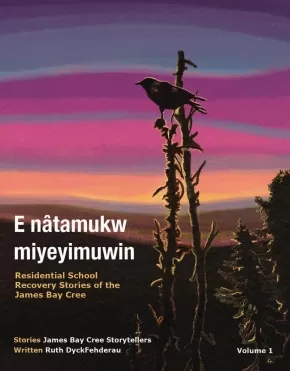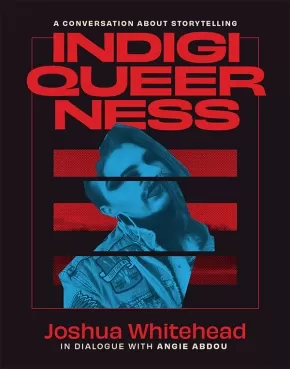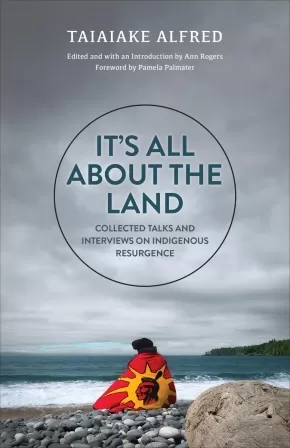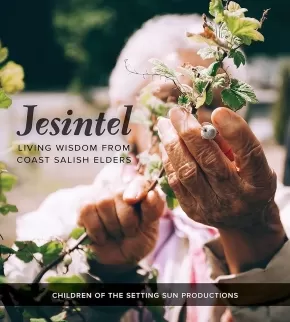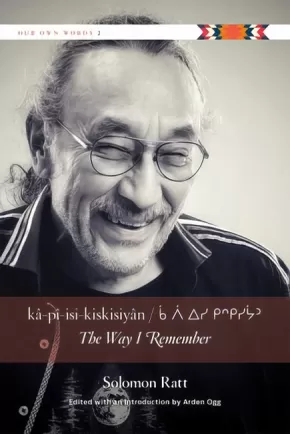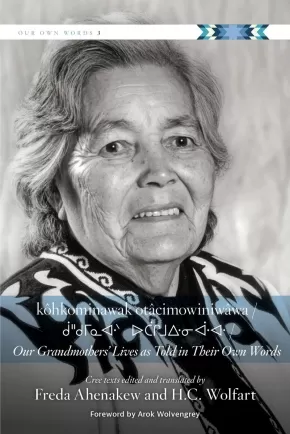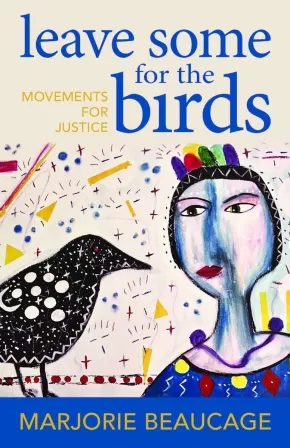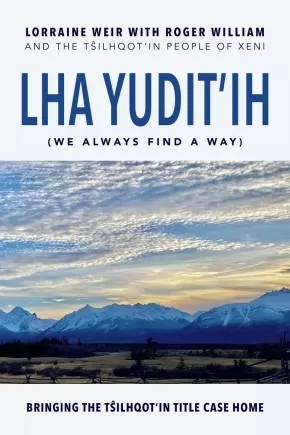Personal Narratives
Synopsis:
Now You Know Me tells of a journey of understanding between two old friends who grew up in different worlds in the same small town of Powell River, BC, on traditional Tla’amin land. Joe Gallagher, who is Tla’amin, and John Matterson, who is white, were friends as teenagers but went their separate ways before reconnecting 35 years later and truly getting to know each other.
As John began to listen more deeply to Joe’s history, they journeyed together through the historic events and attitudes that deeply wounded the Tla’amin and their way of life. With each conversation, John’s understanding of Joe’s life and recognition of his own unearned advantages and blind participation in racism became clearer.
In their illuminating dialogue in Now You Know Me, we learn what it took for Joe to straddle two worlds while battling racism, a traumatic childhood, and his father’s warning that he couldn’t succeed in a white world without working twice as hard. Despite ongoing suffering from multigenerational harms, Joe garnered broad respect on his way to becoming CEO of a groundbreaking Indigenous-led health organization, bringing hope and a collaborative spirit to a revolution in health and wellness for BC First Nations.
Today, John is committed to ongoing learning and allyship, while Joe is called on by First Nations leaders as well as senior leaders in health and government as an able navigator of the movement toward Truth and Reconciliation.
Additional Information
304 pages | 5.50" x 8.50" | Paperback
Synopsis:
Respected Elder Elmer Ghostkeeper takes us on a journey of rediscovery where we gain a new perspective on the world we take for granted. Ghostkeeper tells the story of his attempt to reclaim and reawaken to his Indigenous worldview on his own terms with his traditional knowledge intact.
As he returns to his roots, he shares the series of natural signs that have guided his family through time and shaped their ceremonial activities in living with the land rather than off the land. He reveals how to follow the natural ebb and flow of nature with its spiritual exchange of precise and well-thought-out duties and giftings. As a fluent Cree speaker, he names the Cree words for the 12 moons of the year, setting out these traditional duties and preparations. His writing is a breath of fresh reality and air—air free of exhaust and spiritual exhaustion—air filled with spiritual inspiration.
Additional Information
128 pages | 5.25" x 8.25" | Paperback
Synopsis:
The author of the award-winning memoir Red Paint returns with a razor-sharp, clear-eyed collection of essays on what it means to be a proudly queer indigenous woman in the United States today
Drawing on a rich family archive as well as the anthropological work of her late great-grandmother, Sasha taqʷšəblu LaPointe explores themes ranging from indigenous identity and stereotypes to cultural displacement and environmental degradation to understand what our experiences teach us about the power of community, commitment, and conscientious honesty.
Unapologetically punk, the essays in Thunder Song segue from the miraculous to the mundane, from the spiritual to the physical, as they examine the role of art—in particular music—and community in helping a new generation of indigenous people claim the strength of their heritage while defining their own path in the contemporary world.
Reviews
"Blending beautiful family history with her own personal memories, LaPointe’s writing is a ballad against amnesia, and a call to action for healing, for decolonization, for hope." —Lauren Puckett-Pope, Elle
“It’s a provocative and wonderfully crafted collection exploring cultural legacies, colonialism, and finding your own path forward.” —Susie Dumond, BookRiot
"Lyrical prose elevates LaPointe’s incisive and heartfelt personal reflections. The result is a beautifully rendered snapshot of contemporary American Indigenous life." —Publishers Weekly
"These passionate essays, adamant in their activist pleas, reflect hard-won wisdom, as well as the representative significance of the author’s experiences. Probing and poignant reflections on Indigenous America." —Kirkus Reviews
“Sasha taqʷšəblu LaPointe’s essays in Thunder Song are loud, bold, and startlingly majestic. None of Sasha’s examinations fail to find truth: page after page, the intersections of family, heritage, history, and music build to countless transcendental moments for the reader, which is not only the magic of this book but a clear testament to Sasha’s immense storytelling power. She is a major talent. Thunder Song is masterful and wise, and it will not be forgotten.” ––Morgan Talty, National Bestselling author of Night of the Living Rez
Additional Information
256 pages | 5.36" x 8.30" | Hardcover
Synopsis:
A visual and cultural celebration of a traditional Haida wedding ceremony, exploring its roots, rituals, symbolism, joyfulness, and contemporary significance for a thriving Indigenous Nation.
In 1996, Terri-Lynn Williams and Robert Davidson celebrated their wedding with a traditional ceremony, the first in over a century that was legalized under Haida law. This book provides an intimate photographic window into that momentous day and marks the resurgence of a tradition that was nearly lost to colonial forces.
Relying on recorded knowledge their ancestors had shared with ethnographers and anthropologists, and the few details living Elders could recall about the tradition of guud ‘iina Gihl (“becoming married”) in the time before the arrival of Christian missionaries, the couple carefully planned out a seven-part celebration. It involved a canoe procession, ceremony, feast, dancing, and dowry payment, signifying the coming together of two people, two families, and two clans. The occasion is lovingly and painstakingly recounted through imagery and text in this fascinating tribute to a resilient culture and the unbreakable bonds of love and family.
Additional Information
128 pages | 8.75" x 10.50"| Hardcover
Synopsis:
An Anthology of Monsters by Cherie Dimaline, award-winning Métis author of The Marrow Thieves, is the tale of an intricate dance with life-long anxiety. It is about how the stories we tell ourselves—both the excellent and the horrible—can help reshape the ways in which we think, cope, and ultimately survive. Using examples from her published and forthcoming books, from her mère, and from her own late-night worry sessions, Dimaline choreographs a deeply personal narrative about all the ways in which we cower and crush through stories. Witches emerge as figures of misfortune but also empowerment, and the fearsome Rougarou inspires obedience, but also belonging and responsibility. Dimaline reveals how to collect and curate these stories, how they elicit difficult and beautiful conversations, and how family and community is a place of refuge and strength.
Educator Information
Keywords / Subjects: Stories; Anxiety; Panic; Rougarou; Family; Community; Métis; Witches; Insomnia; Coping; Worries; Grandparents; Empower; Belonging; Responsibility; Mental Health; Biography; Essays; Canadian Literature
Additional Information
64 pages | 5.25" x 9.00" | Paperback
Synopsis:
Called the Northlanders by the Moravian missionaries who sought to colonize them, Avanimiut were Inuit who maintained traditional lifeways, autonomy, and spiritual beliefs in northernmost Labrador. Despite the attempts of the Moravian Mission, the Hudson’s Bay Company, and the Anglican Church to bring them into their Christian and commercial trading worlds, the Avanimiut often held on to their independence. Avanimiut: A History of Inuit Independence in Northern Labrador is the story of a people often displaced by relocation who survived and thrived despite the hardships they faced.
The first version of Avanimiut, a 1996 report titled “Northlanders,” was commissioned by the Labrador Inuit Association and written by Carol Brice-Bennett. Lena Onalik and Andrea Procter have modified the original manuscript to incorporate historical Inuit writing and interviews, including the Inuit voices that had previously been almost entirely omitted. Avanimiut presents these voices alongside the colonial accounts of Inuit families who continued to live in their ancestral territories of Labrador, providing a glimpse into their lives, families, and relationships.
From the earliest interactions between Inuit and Europeans in Labrador to the final eviction of Inuit from their northern homeland, this book illustrates the dignified history of Avanimiut families and honours the strength, resilience, and survival of their ancestors in the north.
Additional Information
414 pages | 6.00" x 9.00" | Paperback
Synopsis:
Christmas is trumpeted as a time of peace, joy, bounty and goodwill. Believers and non-believers alike covet the spirit of the holidays even when circumstances are screwed up.
Recollections from acclaimed Canadian authors combine with emerging voices from across the country in an anthology that debunks the popular depiction of Christmas while delivering its messages of hope and renewal.
Writers of colour, immigrants, Indigenous authors, members of the queer and transgendered community and those marginalized by personal circumstance share memories of surviving bleak Christmases past: holidays spent in shelters, prisons or on the streets; families marred by alcohol and violence; personal struggles with addiction, poverty or grief; isolation and loneliness. Despite these and other obstacles, contributors strive to salvage the spirit of the season.
With contributions from:
- Tolu Oloruntoba, winner of the Governor-General’s Award and Griffin Prize for poetry
- Sonja Larsen, winner of the Edna Staebler Award for creative non-fiction
- JJ Lee, shortlisted for the Governor General, Hilary Weston and Charles Taylor prizes for non-fiction
- Joseph Kakwinokanasum, named a Rising Star by The Writers Union of Canada
Educator Information
Some but limited Indigenous content; it's up to readers to determine if this will work as an authentic resource for their purposes.
Additional Information
260 pages | 5.50" x 8.50" | Paperback
Synopsis:
In this quietly powerful and deeply human book, Ruth DyckFehderau and twenty-one James Bay Cree storytellers put a face to Canada’s Indian Residential School cultural genocide.
Through intimate personal stories of trauma, loss, recovery, and joy, they tell of experiences in the residential schools themselves, in the homes when the children were taken, and on the territory after survivors returned and worked to recover from their experiences and to live with dignity. The prose is clear and accessible, the stories remarkably individual, the detail vivid but not sensational.
Together they reveal the astonishing courage and strength of children along with the complexity and myriad methods of their oppressors. A tough, often funny, and ultimately uplifting book that’s not quite like anything else out there.
This book is published by Cree Board of Health and Social Services of James Bay and distributed by WLU Press.
Reviews
“These previously unwritten stories of lived, traumatized experiences are testament to the storytellers’ courage and strength and resilience. When the rich Cree traditional and spiritual relationship with land and with family is harmed by separation, hatred, and fear - a harm resulting in anger and loss of values, identity, and self-worth - these storytellers find ways to heal. Through their stories, you learn about culture as treatment, about the power of forgiveness and love, and about peaceful co-existence in community as essential to healing, belief, and advancing true reconciliation.” —Chief Willie Littlechild, Ermineskin Cree Nation, Former Truth and Reconciliation Commissioner, Former residential school student athlete, Order of Canada; Order of Sport, Member of Sports Halls of Fame, Canada and North America
“These Cree stories, told with utmost respect and a feeling of safety, are gifts. They are medicine.” —Joanna Campiou, Woodland/Plains Cree Knowledge Keeper
“This is a difficult but necessary book. There’s a power to truth and to the realities of the Indian Residential School system, but for those wanting to see strength and movement toward hope, this is the book for you. These stories hold that hope close to the heart. What shines through is a love of the land, a love of community, a love of the Cree language, a love of family – exactly what colonial forces like the IRS system tried to destroy but couldn’t.” —Conor Kerr, Metis/Ukrainian author, Avenue of Champions, Giller Prize longlist
Additional Information
320 pages | 7.00" x 9.00" | Paperback
Synopsis:
Everything I’ve crafted and made has been a whirlwind of community and folks and friends and lovers and family. I kind of write as an animated avatar. A lot of my material comes from listening fiercely to those around me and witnessing that which is discarded or not seen." - Joshua Whitehead
Evolving from a conversation between Joshua Whitehead and Angie Abdou, Indigiqueerness is part dialogue, part collage, and part memoir. Beginning with memories of his childhood poetry and prose and travelling through the library of his life, Whitehead contemplates the role of theory, Indigenous language, queerness, and fantastical worlds in all his artistic pursuits. This volume is imbued with Whitehead’s energy and celebrates Indigenous writers and creators who defy expectations and transcend genres.
Additional Information
48 pages | 5.50" x 7.00" | Paperback
Synopsis:
Illuminating the First Nations struggles against the Canadian state, It’s All about the Land exposes how racism underpins and shapes Indigenous-settler relationships. Renowned Kahnawà:ke Mohawk activist and scholar Taiaiake Alfred explains how the Canadian government’s reconciliation agenda is a new form of colonization that is also guaranteed to fail.
Bringing together Alfred’s speeches and interviews from over the past two decades, the book shows that Indigenous peoples across the world face a stark choice: reconnect with their authentic cultures and values or continue following a slow road to annihilation. Alfred proposes a radical vision for contesting and confronting the ongoing genocide of the original peoples of this land: Indigenous Resurgence. This way of thinking, being, and practising represents an authentic politics that roots resistance in the spirit, knowledge, and laws of the ancestors.
Set against the historic arc of Indigenous-settler relations in Canada and drawing on the rich heritage of First Nations resistance movements, It’s All about the Land traces the evolution of Indigenous struggle and liberation through the dynamic processes of oratory, dialogue, action, and reflection.
Reviews
"It is Taiaiake’s call to face the uncomfortable truths of colonization and the impacts it has had on our Nations, families, and individuals that makes his work stand out. As his work is such a challenge to the current unjust status quo, it has been both embraced and rejected. This is a clear sign that he is on to something" — Pam Palmater, from the Foreword
“It’s All About the Land is a long-awaited, vital contribution and is an essential reading for anyone who wants to understand the injustices Native people live under and what we should be doing about it.” — Grand Chief Kahsennenhawe Sky-Deer, Mohawk Council of Kahnawà:ke
“Taiaiake Alfred is a thought shifter who builds fires with his words. Anyone who cares about Indigenous issues and craves to be jolted into action should read this book -- a real counter narrative to the status quo.” — Chelsey Luger, Lakota and Anishinaabe, author of The Seven Circles: Indigenous Teachings for Living Well
“It’s All About the Land takes mainstream assumptions about reconciliation as seen and processed through a colonial filter and turns them on their head. Insightful, informative, and deeply thoughtful, this book will have you thinking differently about decolonization and what reconciliation really stands for. Ultimately, it asks all of us to do and be more.” — Toula Drimonis, writer, columnist, and author of We, the Others: Allophones, Immigrants, and Belonging in Canada
“Some may be surprised, given my position and our respective philosophical world views, that I count Taiaiake as a friend, but his work forces me to scrutinize and constantly question my actions and those of my government so as not to reproduce the horrific social experiment that has devastated Indigenous peoples.” — The Honourable Marc Miller, Minister of Crown-Indigenous Relations
Educator Information
This book challenges conventional thinking about reconciliation. Renowned Kahnawà:ke Mohawk activist and scholar Taiaiake Alfred argues that reconciliation is another form of colonization and instead proposes Indigenous Resurgence as a radical vision for contesting and confronting the continuing genocide of the Original Peoples.
Contents
Foreword: The Battle to Decolonize Ourselves Inside and Out
Pamela Palmater
Introduction
Ann Rogers
Wasáse Redux
June 2005, TV Ontario
From Noble Savage to Righteous Warrior
March 6, 2010, Vancouver, BC
The Psychic Landscape of Contemporary Colonialism
November 9, 2011, Ottawa
Practical Decolonization
April 9, 2012, Kingston, ON
Warrior Scholarship
March 18, 2013, Victoria, BC
Constitutional Recognition and Colonial Doublespeak
November 27, 2013, Melbourne, Australia
On Being and Becoming Indigenous
November 28, 2013, Melbourne, Australia
Reconciliation as Recolonization
September 20, 2016, Montreal, QC
From Red Power to Resurgence
November 2, 2018, Vancouver, BC
Rebuilding the Fire: In Conversation with Pamela Palmater
July 5, 2019, Warrior Life Podcast
Ronón:kwe
January 19, 2021, The Mythic Masculine Podcast
Rooted Responsibility
March 2021, Victoria, BC
You Can’t Decolonize Colonization
September 16, 2022, The Decolonized Buffalo Podcast
Afterword: Wa'tkwanonhwerá:ton
Taiaiake Alfred
Bonus Track: The Four Intuitions
April 20, 2003, TV Ontario
A Note on the Sources
Index
Additional Information
304 pages | 5.50" x 8.50" | 11 b&w illustrations | Paperback
Synopsis:
“We need to learn and grow together, and if we are able to do this, we will create harmony,” counsels Tom Sampson, an elder of Tsartlip First Nation in British Columbia.
Dynamic and diverse, Coast Salish culture is bound together by shared values and relations that generate a resilient worldview. Jesintel—"to learn and grow together"—characterizes the spirit of this book, which brings the cultural teachings of nineteen elders to new generations.
Featuring interviews that share powerful experiences and stories, Jesintel illuminates the importance of ethical reciprocal relationships and the interconnectedness of places, land, water, and the spirit within all things. Elders offer their perspectives on language revitalization, Coast Salish family values and naming practices, salmon, sovereignty, canoe racing, and storytelling. They also share traumatic memories, including of their boarding school experiences and the epidemics that ravished their communities. Jesintel highlights the importance of maintaining relations and traditions in the face of ongoing struggles. Collaboration is at the heart of this work and informs how the editors and community came together to honor the boundless relations of Coast Salish people and their territories.
Elders Interviewed:
Tom Sampson (Tsartlip First Nation)
Virginia Cross (Muckleshoot Tribe)
Ernestine Gensaw (Lummi Nation)
Steve and Gwen Point (Stó:lō Nation)
Gene and Wendy Harry (Malahat Nation)
Claude Wilbur (Swinomish Tribe)
Richard Solomon (Lummi Nation)
Elaine Grinell (Jamestown S’Klallam Tribe)
Arvid Charlie (Cowichan Nation)
Amy George (Tsleil-Waututh Nation)
Nancy Shippentower (Nisqually Tribe)
Nolan Charles (Musqueam Indian Band)
Andy de los Angeles (Snoqualmie Tribe)
Jewell James (Lummi Nation)
Kenny Moses Sr. Family (Tulalip Tribal Nation)
Ramona Morris (Lummi Nation)
Reviews
"A beautiful sharing of thriving Coast Salish communities. Indigenous elders, cultures, and languages have so much precious wisdom to share, and Jesintel celebrates these through storytelling and photos. It is a generous gift to anyone who wants to better understand the resilience of Indigenous communities."- Michelle M. Jacob (Yakama), author of The Auntie Way: Stories Celebrating Kindness, Fierceness, and Creativity
Educator Information
Nineteen elders from Coast Salish communities in the Pacific Northwest and British Columbia offer a portrait of their perspectives on language, revitalization, and Coast Salish family values. Topics include naming practices, salmon, canoe journeys and storytelling.
Additional Information
224 pages | 9.00" x 10.00" | 144 colour illustrations | 1 map | Paperback
Synopsis:
A residential school survivor finds his way back to his language and culture through his family’s traditional stories.
When reflecting on forces that have shaped his life, Solomon Ratt says his education was interrupted by his schooling. Torn from his family at the age of six, Ratt was placed into the residential school system—a harsh, institutional world, operated in a language he could not yet understand, far from the love and comfort of home and family. In kâ-pî-isi-kiskisiyân / The Way I Remember, Ratt reflects on these memories and the life-long challenges he endured through his telling of âcimisowin—autobiographical stories—and also traditional tales.
Written over the course of several decades, Ratt describes his life before, during, and after residential school. In many ways, these stories reflect the experience of thousands of other Indigenous children across Canada, but Ratt’s stories also stand apart in a significant way: he managed to retain his mother language of Cree by returning home to his parents each summer despite the destruction wrought by colonialism.
Ratt then shifts from the âcimisowina (personal, autobiographical stories) to âcathôhkîwina, (sacred stories) the more formal and commonly recognized style of traditional Cree literature, to illustrate how, in a world uninterrupted by colonialism and its agenda of genocide, these traditional stories would have formed the winter curriculum of a Cree child’s education.
Presented in Cree Th-dialect Standard Roman Orthography, syllabics, and English, Ratt’s reminiscences of residential school escapades almost always end with a close call and a smile. Even when his memories are dark, Ratt’s particularly Cree sense of humour shines, making kâ-pî-isi-kiskisiyân /The Way I Remember an important and unique memoir that emphasizes and celebrates Solomon Ratt’s perseverance and life after residential school.
Reviews
"Sol is an international treasure the whole world should enjoy." —Buffy Sainte-Marie
"The Way I Remember is inarguably the most important book yet to be published for the preservation of the Cree language and an understanding of the importance of the oral tradition to Cree culture and education." —Jesse Archibald-Barber, First Nations University of Canada
"As he looks back over his life journey reclaiming, breathing new and old life back into our beautiful language, Solomon credits the late Reverend Edward Ahenekew for helping me "to put the pieces together." kista meena dear Solomon, ekosi aytotumawiyak. This is an important book because you have also put pieces together for us so that we can have a good journey. Kinahnaskomtin." —Maria Campbell, author of Halfbreed
"A gift to future generations...Full of humour and resilience in equal measure, these Cree/English stories offer us a glimpse into a world as it was, and future that could be" —Chelsea Vowel, author of Indigenous Writes
Educator & Series Information
Presented in Cree Th-dialect Standard Roman Orthography, syllabics, and English.
This book is part of the Our Own Words series.
Additional Information
264 pages | 6.00" x 9.00" | Paperback
Synopsis:
The 25th anniversary of a historically significant collection, presented in Cree and English.
kôhkominawak otâcimowiniwâwa / Our Grandmothers’ Lives is a collection of reminiscences and personal stories from the daily lives of seven Cree women over the past century, presented here in Cree and English. Recorded in their own language, these women share their memories of their lives and the history of their peoples, describing activities such as household chores, snaring rabbits and picking berries, going to school, marriage, bearing and raising children, and providing insights into the traditional teachings of a society in which the practical and spiritual are never far apart.
Reviews
"[T]hese ... are good stories to share ... and are absolute treasures." —Chelsea Vowel, author of Buffalo is the New Buffalo
Educator & Series Information
This book is part of the Our Own Words series.
Presented in Cree and English.
Additional Information
418 pages | 6.00" x 9.00" | Paperback
Synopsis:
From acclaimed filmmaker, artist and activist Marjorie Beaucage comes a poetic memoir that reflects on seven decades of living and seeking justice as a Two Spirit Michif woman. Poems, poetic observations and thoughtful meanderings comprise this inspirational journal-memoir-poetry collection from a woman who has dedicated her life and her talent to creating social change. Unfolding the wisdom gained from experience, leave some for the birds: movements for justice offers guidance for younger activists following the author's trailblazing footsteps.
Reviews
"I have long admired Margie's tenacious ability to persevere in spite of the obstacles placed in front of her. She continues to challenge the status quo and hangs onto what is right and just. She awakens, supports and lifts the many voices who struggle to be heard. Her voice dives deep into the depth of unknown and bewildering waters. Yet, she bubbles to the surface, takes a breath and howls with a universal plea to pay attention to the injuries imposed on the land and its people. I am honored to walk with her."--Louise B. Halfe - Sky Dancer, author of The Crooked Good.
Additional Information
211 pages | 6.00" x 9.00" | 7 Illustrations | Paperback
Synopsis:
Eight years in the making, Lha yudit’ih (We Always Find a Way) is a community oral history of Tsilhqot’in Nation v. British Columbia, the first case in Canada to result in a declaration of Aboriginal Rights and Title to a specific piece of land. Told from the perspective of the Plaintiff, Chief Roger William, joined by fifty Xeni Gwet’ins, Tŝilhqot’ins, and allies, this book encompasses ancient stories of creation, modern stories of genocide through smallpox and residential school, and stories of resistance including the Tŝilhqot’in War, direct actions against logging and mining, and the twenty-five-year battle in Canadian courts to win recognition of what Tŝilhqot’ins never gave up and have always known. “We are the land,” as Chief Roger says. After the violence of colonialism, he understands the court case as “bringing our sight back.” This book witnesses the power of that vision, its continuity with the Tŝilhqot’in world before the arrival of colonizers two centuries ago, and its potential for a future of freedom and self-determination for the Tŝilhqot’in People.
Additional Information
480 pages | 6.49" x 9.48" | 32 page colour photograph insert and black and white photos and illustrations and maps throughout | Paperback

